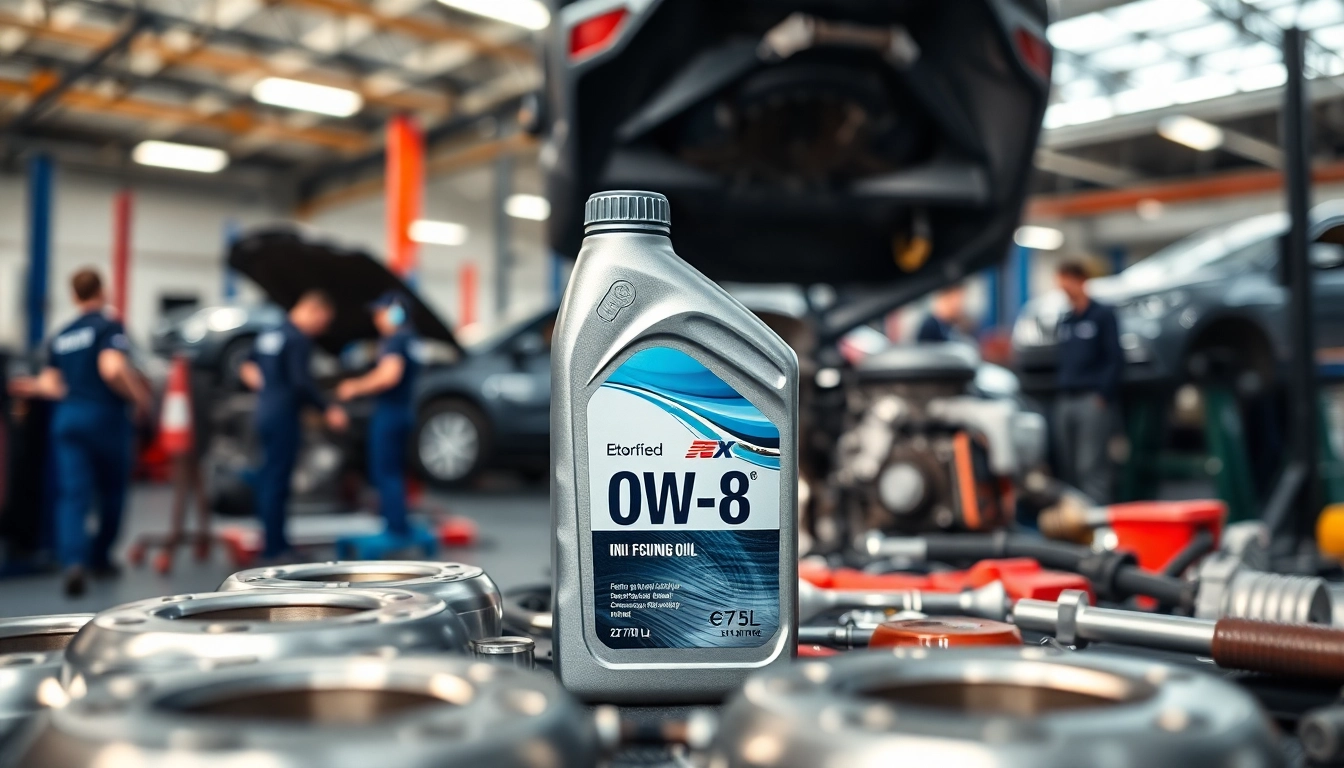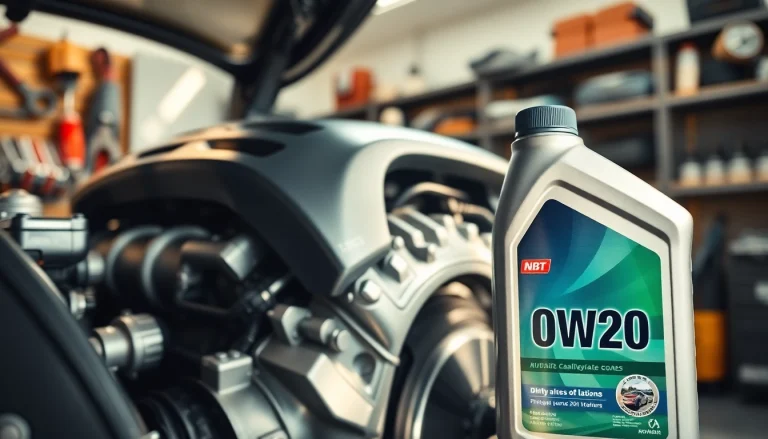What is 0W-8 Oil?
0W-8 oil is a cutting-edge motor oil formulation that represents the pinnacle of engine lubrication technology, particularly in modern hybrid and fuel-efficient vehicles. This oil type is engineered to provide optimum performance under a variety of driving conditions, significantly improving fuel economy while maintaining robust engine health. The designation “0W-8” indicates its viscosity rating: the first number, ‘0’, signifies its low temperature performance (or winter viscosity), while the second number, ‘8’, suggests its high-temperature viscosity.
Overview of Viscosity Ratings
Viscosity is a crucial factor in engine oil performance. It determines how the oil flows at different temperatures, which directly impacts the lubrication capability of the engine. The Society of Automotive Engineers (SAE) uses a specific grading system to classify motor oils based on their viscosity. Oils graded as ‘0W’ can start up in extremely cold temperatures, protecting engine parts immediately upon ignition. The ‘8’ in 0W-8 indicates a very low high-temperature viscosity, making it exceptionally fluid and efficient for facilitating engine performance.
Key Specifications and Characteristics
0W-8 oil has several notable characteristics that make it suitable for modern engines:
- Low viscosity: This allows for reduced drag within engine components, enhancing fuel efficiency.
- Advanced additive technology: Provides high levels of protection against wear and tear, heat, and deposits.
- Excellent cold-flow properties: Ensures that oil flows rapidly upon start-up in cold environments, maximizing engine protection.
Applications in Modern Vehicles
The primary use of 0W-8 oil is found in specific models from manufacturers like Toyota and Lexus, designed to take advantage of this ultra-thin oil for maximum fuel economy and engine efficiency. Vehicles that recommend 0W-8 often feature advanced engineering that relies on lower viscosity oil for improved maneuverability and reduced fuel consumption.
Benefits of Using 0W-8 Oil
Adopting 0W-8 oil in vehicles that require it presents a myriad of benefits that cater to modern driving standards and environmental considerations.
Improved Fuel Efficiency
One of the marquee advantages of using 0W-8 oil is its capacity to enhance fuel efficiency. Due to its lower viscosity compared to traditional oils, 0W-8 reduces friction within the engine. This reduced friction translates into lower energy consumption and, consequently, improved fuel economy. Studies show that using 0W-8 can result in efficiency gains of up to 5% compared to heavier oils in appropriately designed engines.
Enhanced Engine Performance
Higher engine performance and responsiveness are direct results of utilizing 0W-8 oil. Its superior flow characteristics ensure that engine components are lubricated adequately from the moment the engine starts, minimizing wear and heat buildup, which often lead to performance degradation over time. Furthermore, ultra-low viscosity oils fry reduce the power loss due to fluid drag, enabling the engine to run more freely and efficiently.
Cold Start Advantages
Cold starts pose a challenge for conventional motor oils, which can struggle to circulate efficiently in lower temperatures. 0W-8 oil’s formulation allows for quicker vehicle start-up in frigid conditions, providing immediate protection to critical engine components and ensuring smoother operation during the initial moments of driving.
Comparing 0W-8 Oil with Other Motor Oils
To better understand the role of 0W-8 oil, it’s beneficial to compare it with other popular oil grades.
0W-8 vs. 0W-16: Key Differences
The key difference between 0W-8 and 0W-16 oil lies in their viscosity ratings. While both oils provide excellent cold-start performance, 0W-8, being thinner, allows for less internal friction. This can yield better fuel economy, especially in vehicles specifically designed to use this oil. 0W-16, however, may offer slightly more protection under heavy load scenarios due to its higher viscosity, making it preferable for certain driving styles or conditions.
When to Choose Thicker Oils?
Thicker oils are often a better choice when driving conditions require higher protection against wear, such as towing heavy loads or driving in high-temperature environments. Drivers should refer to their vehicle’s owner’s manual for the manufacturer-recommended oil viscosity, which takes into consideration engine design, operating temperature, and load conditions.
Cost Considerations and Value
0W-8 oil tends to be pricier than conventional oils due to the specialized refining process required to obtain its ultra-low viscosity. However, the value obtained from improved fuel economy and enhanced engine longevity can justify the higher upfront costs. In financial terms, the fuel savings accrued over time can outweigh the initial investment in premium oils like 0W-8.
How to Change 0W-8 Oil: A Step-by-Step Guide
Changing 0W-8 oil is similar to changing any other motor oil, but given its unique properties, it’s vital to handle it with care.
Preparing Your Vehicle for Oil Change
Prior to changing the oil, ensure that you have all necessary tools and supplies on hand. Park the vehicle on a level surface and turn off the engine to allow it to cool. It’s recommended to wear gloves and have a container ready to catch old oil.
Recommended Tools and Supplies
- New 0W-8 oil
- Oil filter
- Oil catch pan
- Wrenches or socket set
- Funnel
- Shop towels or rags
Post-Change Maintenance Tips
After replacing the oil, run the engine for a few minutes to allow the oil to circulate. Check for leaks, ensuring that the oil filter and drain plug are secure. Finally, dispose of the old oil and filter appropriately, following local regulations on hazardous waste disposal.
Common Questions About 0W-8 Oil
As with any specialized motor oil, numerous questions arise regarding its use, suitability, and application.
Is 0W-8 Oil Suitable for All Vehicles?
No, 0W-8 oil is specifically designed for vehicles that recommend it in their owner’s manual. Using it in vehicles that do not specify it may lead to inadequate lubrication and potential engine damage.
How Frequently Should 0W-8 Oil Be Changed?
Oil change intervals will vary based on driving conditions, but generally, it’s advisable to follow the manufacturer’s recommendations, which can range from 5,000 to 10,000 miles for 0W-8 oil. Regular monitoring of oil level and quality also helps in determining when to perform an oil change.
Where to Find 0W-8 Oil?
Quality 0W-8 oil is available at select auto parts stores and from online retailers. It may not be as widely stocked as conventional oils but can typically be found through major brands like Mobil 1 or Valvoline. For more information on its availability and usage, consider referring to detailed resources such as 0w-8 oil blogs and forums.








